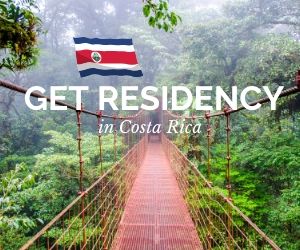Steven1 wrote:
Be sure to post your experience(s) with the Costa Rican medical industry for the group, BonePoney, should you ever require emergency medical assistance in a country which has no blood bank and also a country where the public hospitals don't share blood supplies with the more exlcusive and "certified" private hospitals.
Where did you get that information? As the following Tico Times article points out there are problems getting sufficient amount of donors there is a central blood bank. The article makes no mention of the CAJA donation centers refusing to provide blood to private hospitals so I wonder where you found that information. The only mention is that of the 34 donation centers 5 are located in private hospitals but does not say they do not share resources.
Low blood reserves threaten Costa Rica health care
Posted: Friday, June 22, 2012 - By Matt Levin
From the Tico Times print edition
During emergencies, Costa Rican doctors in many cases must scramble to find blood donors.
The lack of voluntary blood donations in the country has long been troubling for health officials. If a large highway accident occurred or a natural disaster took place, the head of the Central Blood Bank said Costa Rica likely would not have enough blood reserves to help victims.
Only 56 percent of Costa Rica’s blood donations come from voluntary donors visiting a blood bank, Central Blood Bank President Erna Meléndez said. The country receives 35,000 voluntary donations per year, when hospitals require almost double that to be sufficient.
As a result, when transfusions are needed, hospitals rely on less-efficient methods.
“When there are special operations, like a transplant or an accident, we have to run and make a call for donations,†Meléndez said. “Here frequently you’ll see in the media, ‘Hospital X needs blood donors.’ This is evidence that the country doesn’t rely on an adequate system to provide a reserve in cases of an emergency.â€
The problem with receiving donations from family – and the lack of voluntary blood donors as a whole – is that when people are compelled to donate because a family member or friend is ill complications can arise. A donor might not be healthy enough to give blood or might not be a match.
Doctors are trying to change attitudes toward blood donation in the country. A bill in the Legislative Assembly called Ley Nacional de Sangre (National Blood Bill) would reorganize the way blood donations are done in the country. Health officials want national blood-donor campaigns, a more centralized system and better use of resources for “procurement, storage and distribution of blood products.â€
The Central Blood Bank has been holding blood drives at universities, imploring healthy donors to give this month. World Blood Donor Day was June 14. The next drive will be held June 27-28 at Universidad Latina’s Heredia campus, north of San José.
Meléndez said foreigners can donate as long as they have residency in the country. Blood donors in Costa Rica must weigh more than 50 kilograms and be 18 years or older. Donors also will be interviewed about their medical history (a recent tattoo or piercing, for example, would disqualify a potential donor). Before making a donation, Meléndez recommends eating a light meal. The 10-minute procedure removes approximately 450 milliliters of blood, which the body replenishes the same day.
Local campaigns have been successful, Meléndez said, but most Costa Ricans do not make regular blood donations a routine.
“There still doesn’t exist a culture of donations, said Gerardo Solano, a doctor in the health care services unit at the Health Ministry. “It’s the same with organs too. More than anything, the [bill] is to promote donation, whether it’s organ donors or blood donors.â€
Solano, who sent the text of the bill to The Tico Times, highlighted that one of the main purposes of the legislation would be to organize national blood-donation campaigns and explain why donating is a necessary “public good.â€
One paragraph in the bill stresses this point, saying: “A society that is able to have enough volunteer blood donors will have a better quality of life, because to be a regular volunteer blood donor, it is necessary to maintain healthy lifestyles.â€
Costa Rica has 34 donation centers. Most are in public hospitals, although five private hospitals also have donation sites. These centers receive little promotion.
In fact, Meléndez often needs to expose myths about blood transfusions to potential donors. She said some patients believe that donating blood can make a person gain weight or that doctors reuse equipment for withdrawing blood. The misinformation and lack of enthusiasm strains a country with limited blood supply and a shortage of voluntary donors.
Said Meléndez: “The Central Blood Bank lives day by day.
_________________

Pura Vida

Only Irish coffee provides in a single glass all four
essential food groups:
alcohol, caffeine, sugar and fat.
Alex Levine











